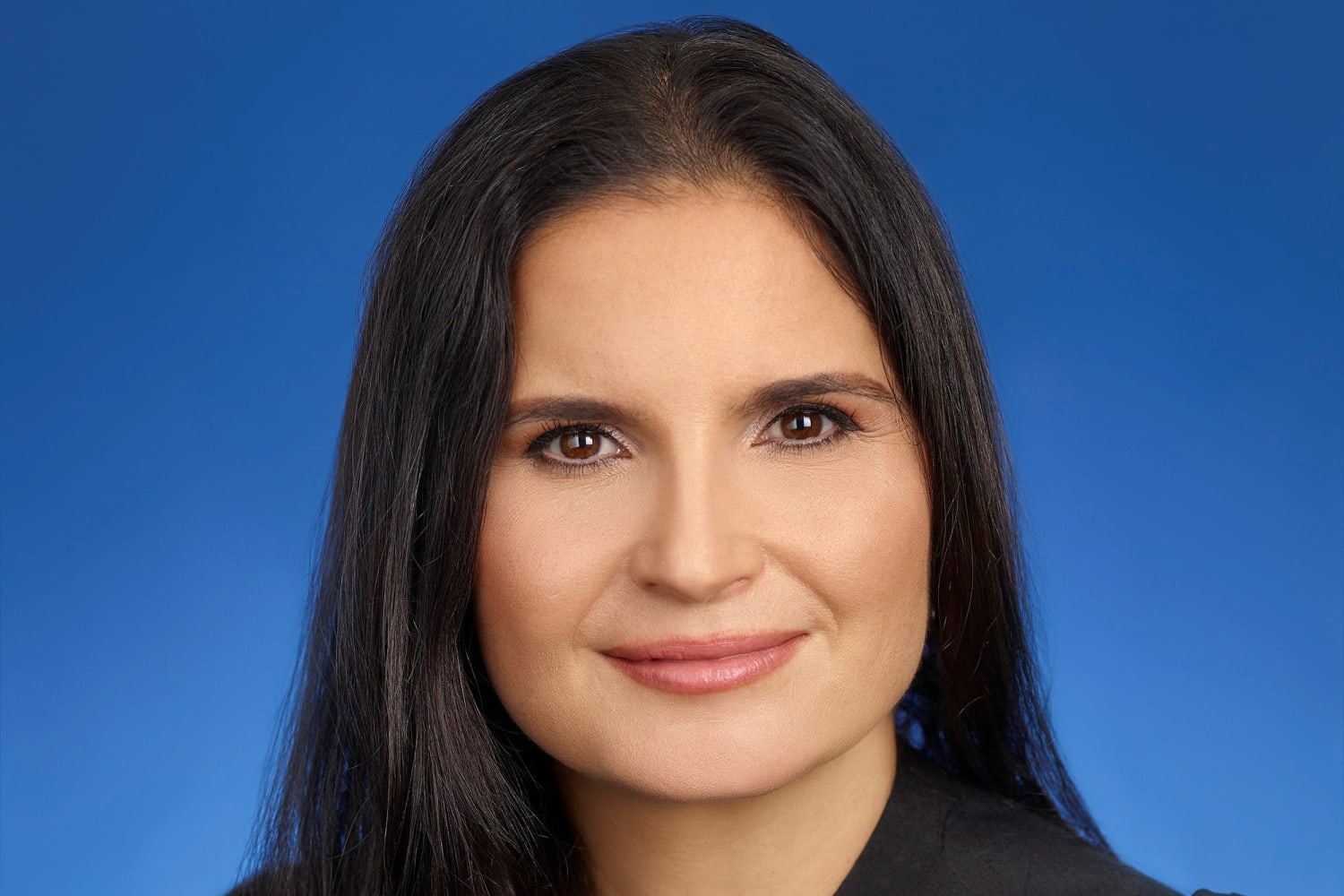U.S. District Judge Aileen Cannon held a hearing Friday on former President Donald Trump’s motion to dismiss the classified documents indictment against him on the argument that special counsel Jack Smith’s appointment was unconstitutional.
In federal court in Fort Pierce, Florida, Trump’s lawyers argued that an officer like the special counsel must be appointed “by law” and that the special counsel should be categorized as a “principal officer” and subject to Senate confirmation. The statutory text cited by the special counsel’s office “does not authorize” the U.S. attorney general’s appointment of the special counsel, his lawyer, Emil Bove, argued.
Cannon appeared skeptical of some of the defense team’s arguments, including that the attorney general’s ability to appoint special counsels with the authority of a U.S. attorney is akin to “the power to appoint a shadow government.”
“That sounds very ominous, a shadow government. But what does that mean?” Cannon asked.
Bove said such a result would stem from the attorney general being able to appoint people with law enforcement power without oversight.
“But is that really a realistic risk” when you have “well-defined statutes” regarding the attorney general’s appointment authority? Cannon asked.
Cannon also asked about the history of the use of special counsels, independent counsels, and special prosecutors, in some cases dating back to the 1800s.
Speaking for the special counsel’s office, James Pearce disputed the notion that Smith’s appointment violates the Constitution, saying that argument disregards precedent, would have “pernicious consequences,” and was already resolved in U.S. v. Nixon, the Watergate-era case in which the Supreme Court found that then-President Richard Nixon had to release audio recordings and other evidence related to the scandal. Pearce argued that in the Nixon case, the courts found that the attorney general had the authority to appoint a special counsel with the power to investigate independently.
Pearce responded to Bove’s attempts to draw a distinction between officials and officers, arguing that “official” is a “catch-all” term for officers and employees.
He also outlined historical precedent, including the appointments of independent special counsels by Presidents Ulysses S. Grant and Theodore Roosevelt, before noting that Congress had long approved the practice of appointing independent special counsels.
Three outside parties that had filed briefs also presented arguments in court on Friday.
Toward the end of the hearing, Cannon asked the prosecution several questions including, “Did the attorney general have any oversight role in seeking the indictment?”
Citing policy, Pearce declined to answer. In response, Cannon asked why there would be any heartburn in answering whether Attorney General Merrick Garland signed off on the indictment in the classified documents case, regardless of policy. Pearce said he didn’t want to seem like he was hiding anything, but maintained that it would be against policy to answer that specific question.
Before court adjourned, Cannon asked prosecutors and the defense to file any supplemental materials, including statutory citations and case law, in filings with a maximum of five pages. She did not issue a ruling.
Garland appointed Smith as special counsel in November 2022, tasking him with overseeing the federal investigations into Trump’s handling of classified documents after he was president as well as his efforts to overturn the 2020 presidential election results.
The hearing on Friday dealt with a motion Trump’s lawyers filed in February arguing that the appointments clause of the Constitution “does not permit the Attorney General to appoint, without Senate confirmation, a private citizen and like-minded political ally to wield the prosecutorial power of the United States. As such, Jack Smith lacks the authority to prosecute this action.”
Trump’s attorneys also wrote that “because neither the Constitution nor Congress have created the office of the ‘Special Counsel,’ Smith’s appointment is invalid.”
They further argued that the funding of Smith’s investigation violates the Constitution’s appropriations clause.
“President Biden’s DOJ is paying for this politically motivated prosecution of Biden’s chief political rival ‘off the books,’ without accountability or authorization,” their motion said. “Rather than funding the Special Counsel’s Office through the ordinary budget process, Jack Smith is drawing on a permanent indefinite appropriation that, by its terms and under the Reno Regulations, is not available to Special Counsel. Thus, Smith’s funding violates the Appropriations Clause.”
Consequently, the court should dismiss the superseding indictment against the former president and the other two defendants in the case, Walt Nauta and Carlos De Oliveira, Trump’s attorneys said.
In response, the special counsel’s team argued that the attorney general has statutory authority to appoint “inferior officers” and that previous court decisions have affirmed the attorney general’s authority to appoint special counsels.
The arguments by Trump’s legal team have been raised unsuccessfully against previous special counsels, including Robert Mueller and David Weiss.
Friday’s court proceeding was the first of three consecutive hearings that Cannon is holding, with the others set for Monday and Tuesday.
A previous trial date was canceled in the case and no future one has been set. The hearing comes a few weeks after the verdict in Trump’s hush money case in New York, where he was found guilty of 34 felony counts of falsifying business records. It was the first time a former U.S. president has been convicted of a crime.
#Judge #Trump #classified #documents #case #hears #challenge #special #counsels #appointment,
#Judge #Trump #classified #documents #case #hears #challenge #special #counsels #appointment
